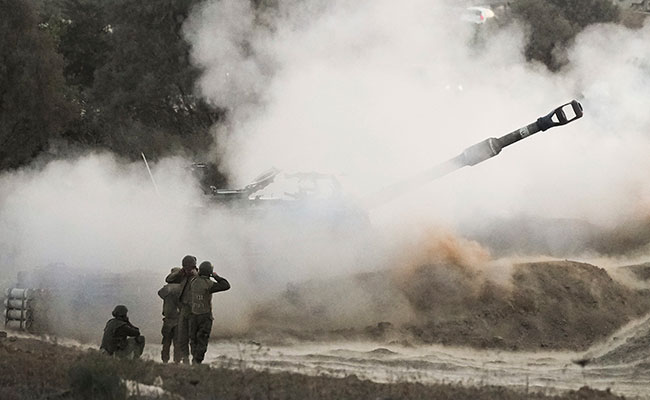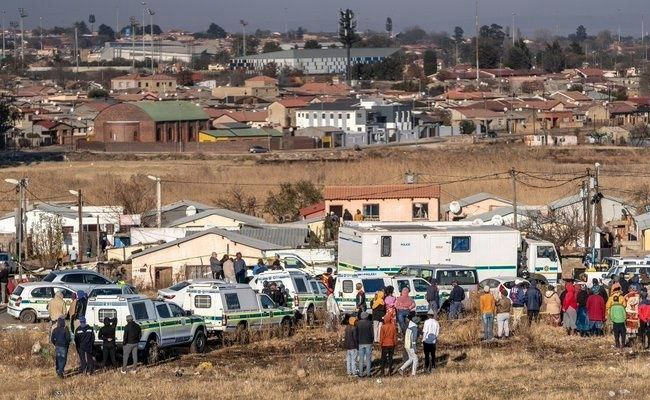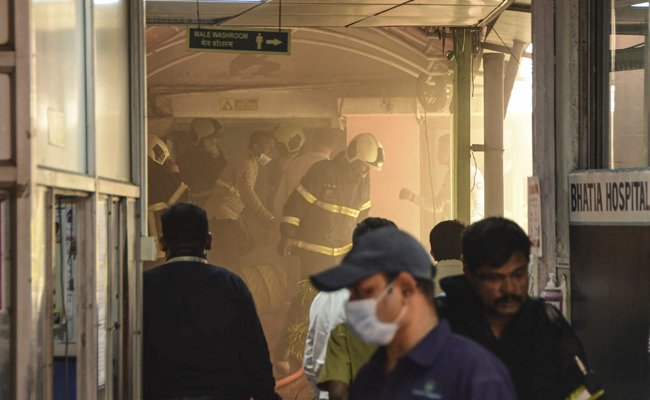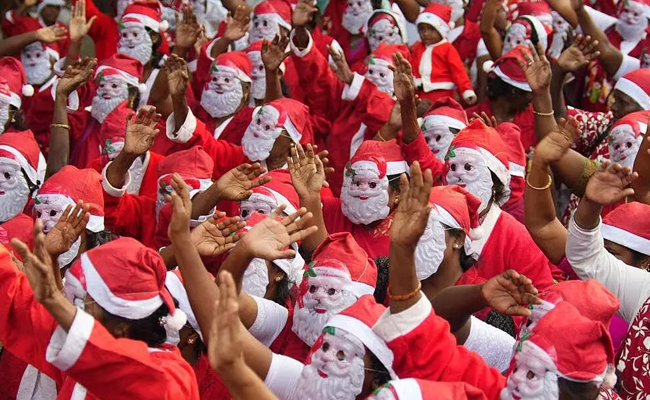Rafah (Gaza Strip) (AP): Israeli troops and tanks launched a brief ground raid into northern Gaza overnight into Thursday, the military said.
The raid came after the UN warned it is on the verge of running out of fuel in the Gaza Strip, forcing it to sharply curtail relief efforts in the territory, which has also been under a complete siege since Hamas' attack across southern Israel ignited the war earlier this month.
Hospitals in Gaza struggled to treat masses of wounded with dwindling resources. Health officials said the death toll was soaring as Israeli jets pounded Gaza. Workers pulled dead and wounded civilians, including many children, out of landscapes of rubble in cities across the territory.
Gaza's Health Ministry, which is controlled by Hamas, said Wednesday that more than 750 people were killed over the past 24 hours, higher than the 704 killed the previous day. The Associated Press could not independently verify the death toll, and the ministry does not distinguish between civilians and combatants.
The Israeli military, which accuses Hamas of operating among civilians, said its strikes killed militants and destroyed military targets.
The rising death tolls in Gaza are unprecedented in the decades-long Israeli-Palestinian conflict. Even greater loss of life could come if Israel launches an expected ground offensive aimed at crushing Hamas, which has ruled Gaza since 2007 and survived four previous wars with Israel.
The Gaza Health Ministry says more than 6,500 Palestinians have been killed in the war. That figure includes the disputed toll from an explosion at a hospital last week.
The fighting has killed more than 1,400 people in Israel, mostly civilians slain during the initial Hamas attack, according to the Israeli government. Hamas also holds some 222 hostages in Gaza.
The warning by the U.N. agency for Palestinian refugees, UNRWA, over depleting fuel supplies raised alarm that the humanitarian crisis could quickly worsen.
Gaza's population has also been running out of food, water and medicine. About 1.4 million of Gaza's 2.3 million residents have fled their homes, with nearly half of them crowded into U.N. shelters.
In recent days, Israel let a small number of trucks with aid enter from Egypt but barred deliveries of fuel needed to power generators saying it believes Hamas will take it.
UNRWA has been sharing its own fuel supplies so that trucks can distribute aid, bakeries can feed people in shelters, water can be desalinated, and hospitals can keep incubators, life support machines and other vital equipment working.
If it continues doing all of that, fuel will run out by Thursday, so the agency is deciding how to ration its supply, UNRWA spokeswoman Tamara Alrifai told The Associated Press.
"Do we give for the incubators or the bakeries?" she said. "It is an excruciating decision."
More than half of Gaza's primary health care facilities and roughly a third of its hospitals have stopped functioning, the World Health Organization said.
At Gaza City's al-Shifa Hospital, the lack of medicine and clean water have led to "alarming" infection rates, the group Doctors Without Borders said. Amputations are often required to prevent infection from spreading in the wounded, it said.
One surgeon with the group described amputating half the foot of a 9-year-old boy with only "slight sedation" on a hallway floor as his mother and sister watched.
The conflict has also threatened to spread across the region. The Israeli military said it struck military sites in Syria in response to rocket launches from the country. Syrian state media said eight soldiers were killed and seven wounded.
Hamas' surprise attack on Oct. 7 in southern Israel stunned the country with its brutality, its unprecedented toll and the failure of intelligence agencies to know it was coming. Prime Minister Benjamin Netanyahu said in a speech Wednesday night that he will be held accountable, but only after Hamas was defeated.
"We will get to the bottom of what happened," he said. "This debacle will be investigated. Everyone will have to give answers, including me."
Israel's U.N. ambassador, Gilad Erdan, said his country will stop issuing visas to U.N. personnel after U.N. Secretary-General Antonio Guterres said that Hamas' attack "did not happen in a vacuum." It was unclear what the action, if implemented, would mean for U.N. aid personnel working in Gaza and the West Bank.
"It's time to teach them a lesson," Erdan told Army Radio, accusing the U.N. chief of justifying a slaughter.
The U.N. chief told the Security Council on Tuesday that "the Palestinian people have been subjected to 56 years of suffocating occupation." Guterres said "the grievances of the Palestinian people cannot justify the appalling attacks by Hamas. And those appalling attacks cannot justify the collective punishment of the Palestinian people."
Guterres said Wednesday he is "shocked" at the misinterpretation of his statement "as if I was justifying acts of terror by Hamas."
"This is false. It was the opposite," he told reporters.
Let the Truth be known. If you read VB and like VB, please be a VB Supporter and Help us deliver the Truth to one and all.
Johannesburg (AP): A 32-year-old suspect has been arrested in connection with a mass shooting which claimed the lives of 12 people including three children at an unlicensed pub earlier this month, South African police said on Monday.
The man is suspected of being one of the three people who opened fire on patrons in a pub at Saulsville township, west of South Africa's capital Pretoria, killing 12 people including three children aged 3, 12 and 16.
At least 13 people were also injured during the attack, whose motive remains unknown.
According to the police, the suspect was arrested on Sunday while traveling to Botlokwa in Limpopo province, more than 340 km from where the mass shooting took place on Dec 6.
An unlicensed firearm believed to have been used during the attack was recovered from the suspect's vehicle.
“The 32-year-old suspect was intercepted by Limpopo Tracking Team on the R101 Road in Westenburg precinct. During the arrest, the team recovered an unlicensed firearm, a hand gun, believed to have been used in the commission of the multiple murders. The firearm will be taken to the Forensic Science Laboratory for ballistic analysis,” police said in statement.
The suspect was arrested on the same day that another mass shooting at a pub took place in the Bekkersdal township, west of Johannesburg, in which nine people were killed and 10 wounded when unknown gunmen opened fire on patrons.
Police have since launched a search for the suspects.
South Africa has one of the highest homicide rates in the world and recorded more than 26,000 homicides in 2024 — an average of more than 70 a day. Firearms are by far the leading cause of death in homicides.
The country of 62 million people has relatively strict gun ownership laws, but many killings are committed with illegal guns, according to authorities.
According to police, mass shootings at unlicensed bars are becoming a serious problem. Police shut down more than 11,000 illegal taverns between April and September this year and arrested more than 18,000 people for involvement in illegal liquor sales.





